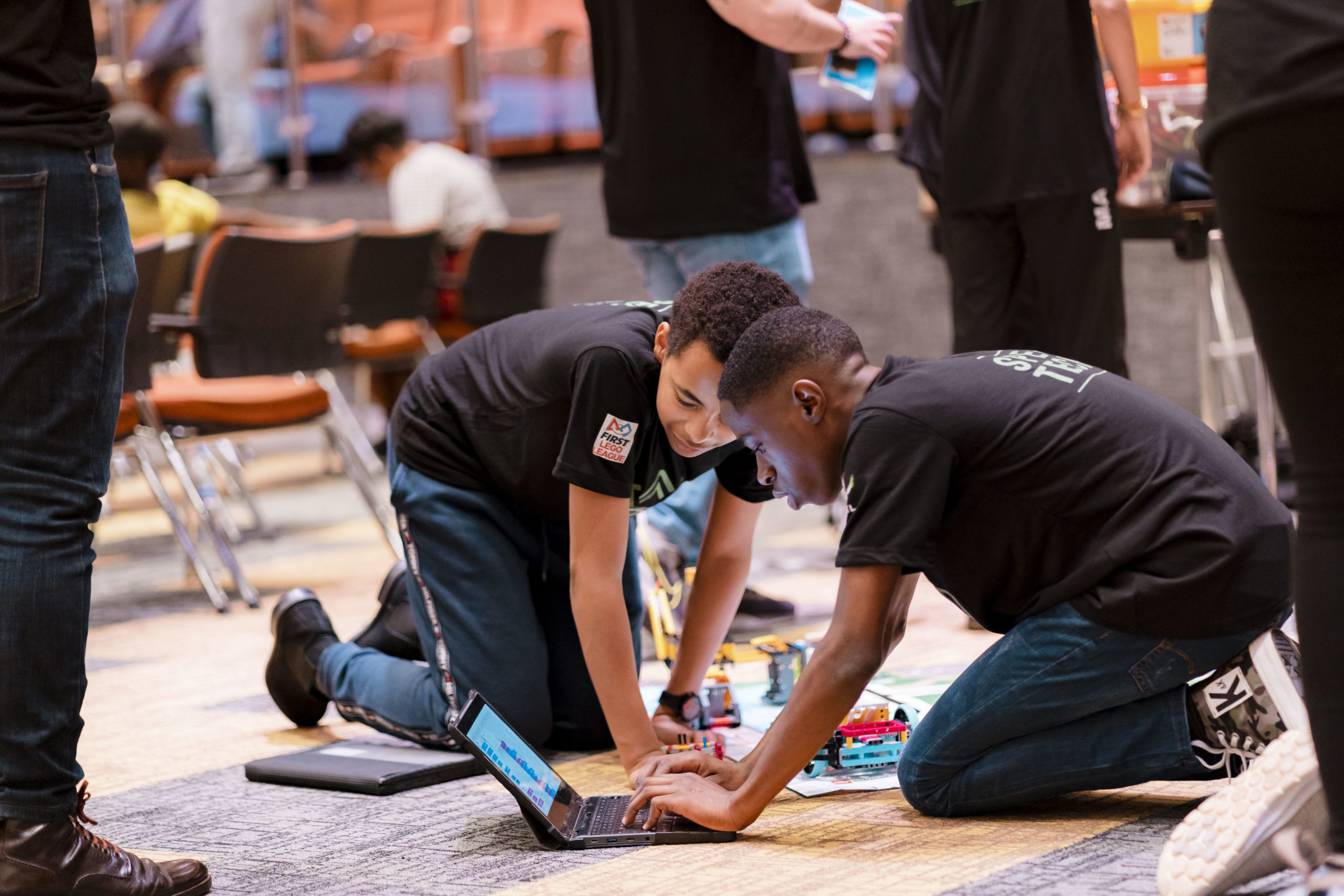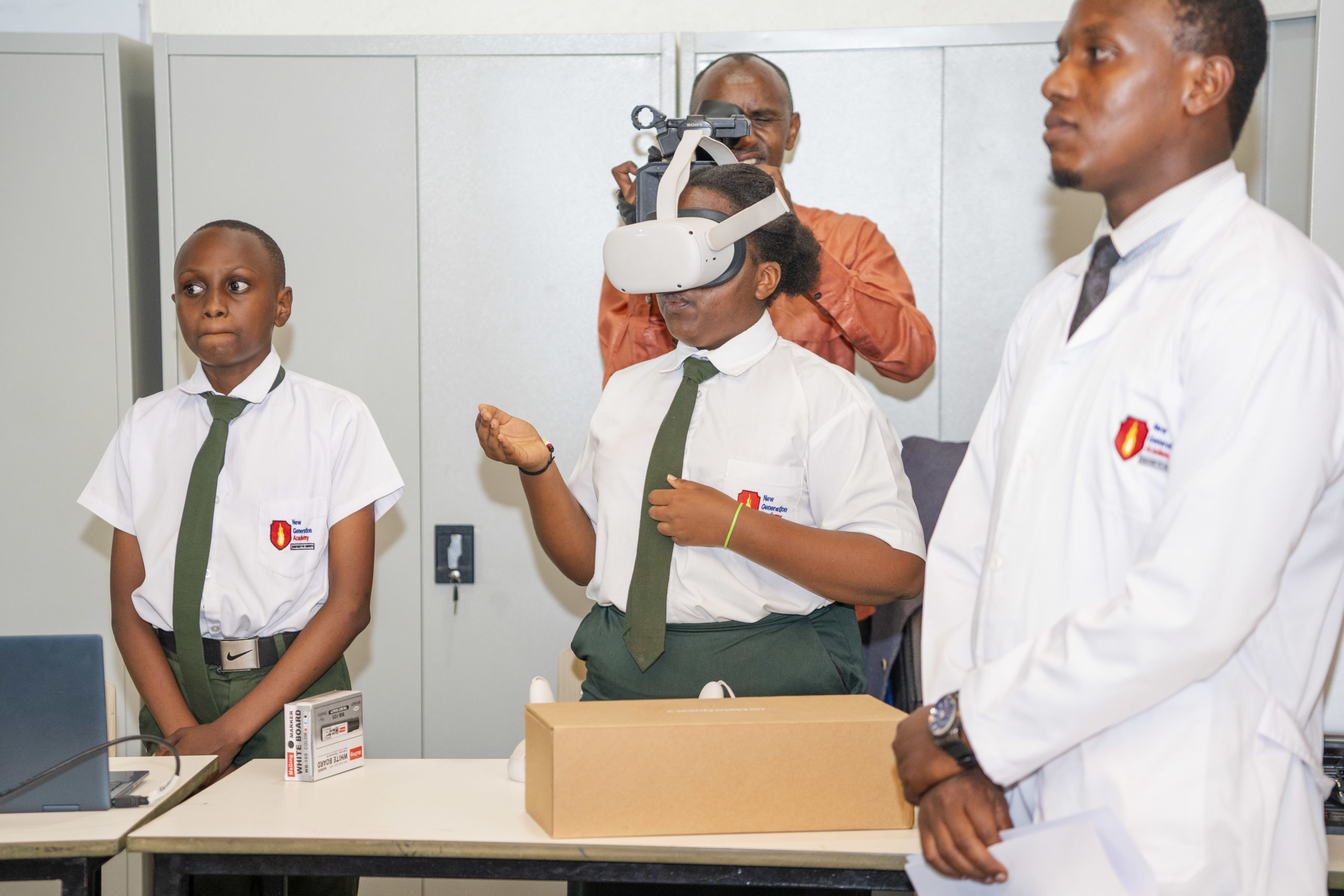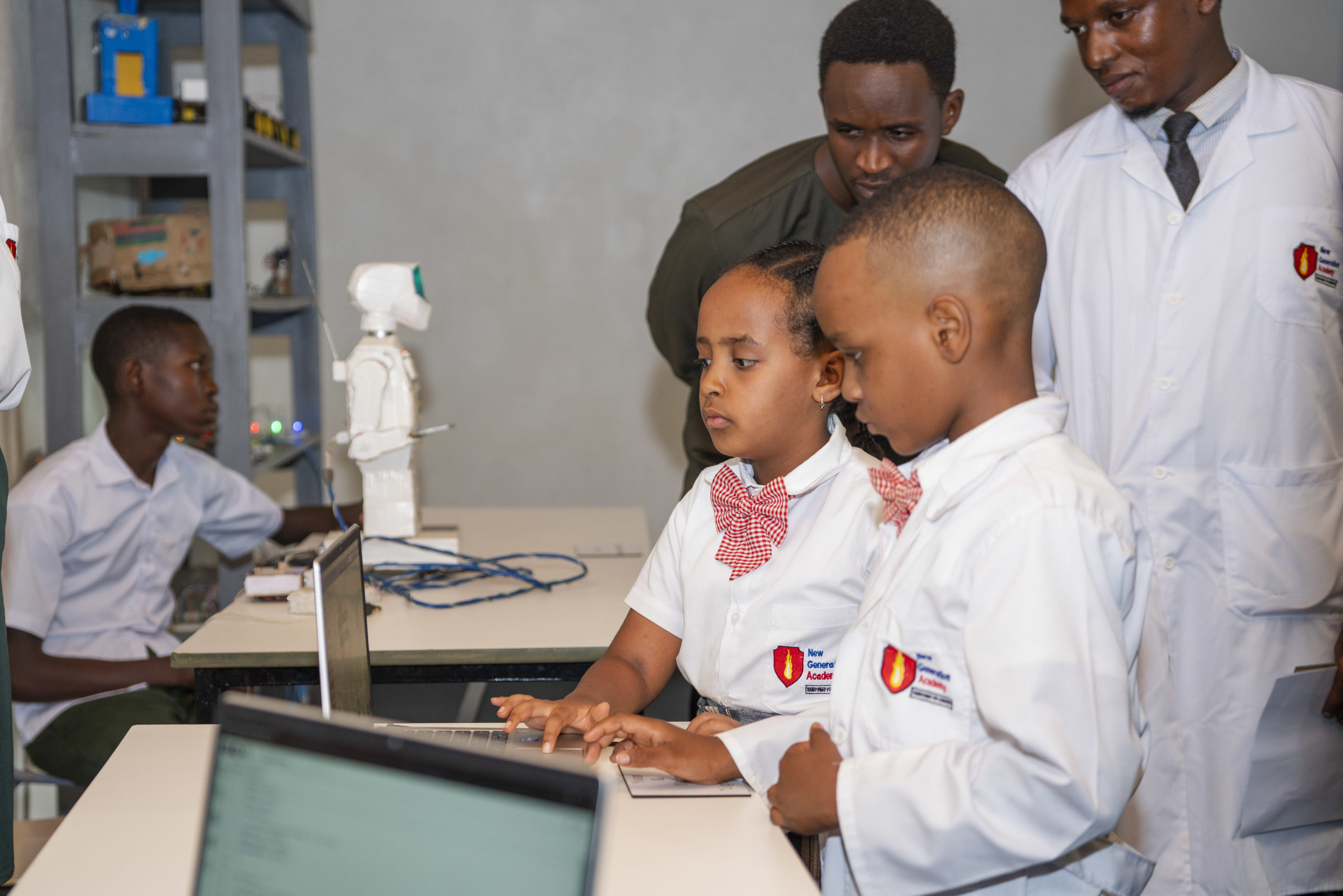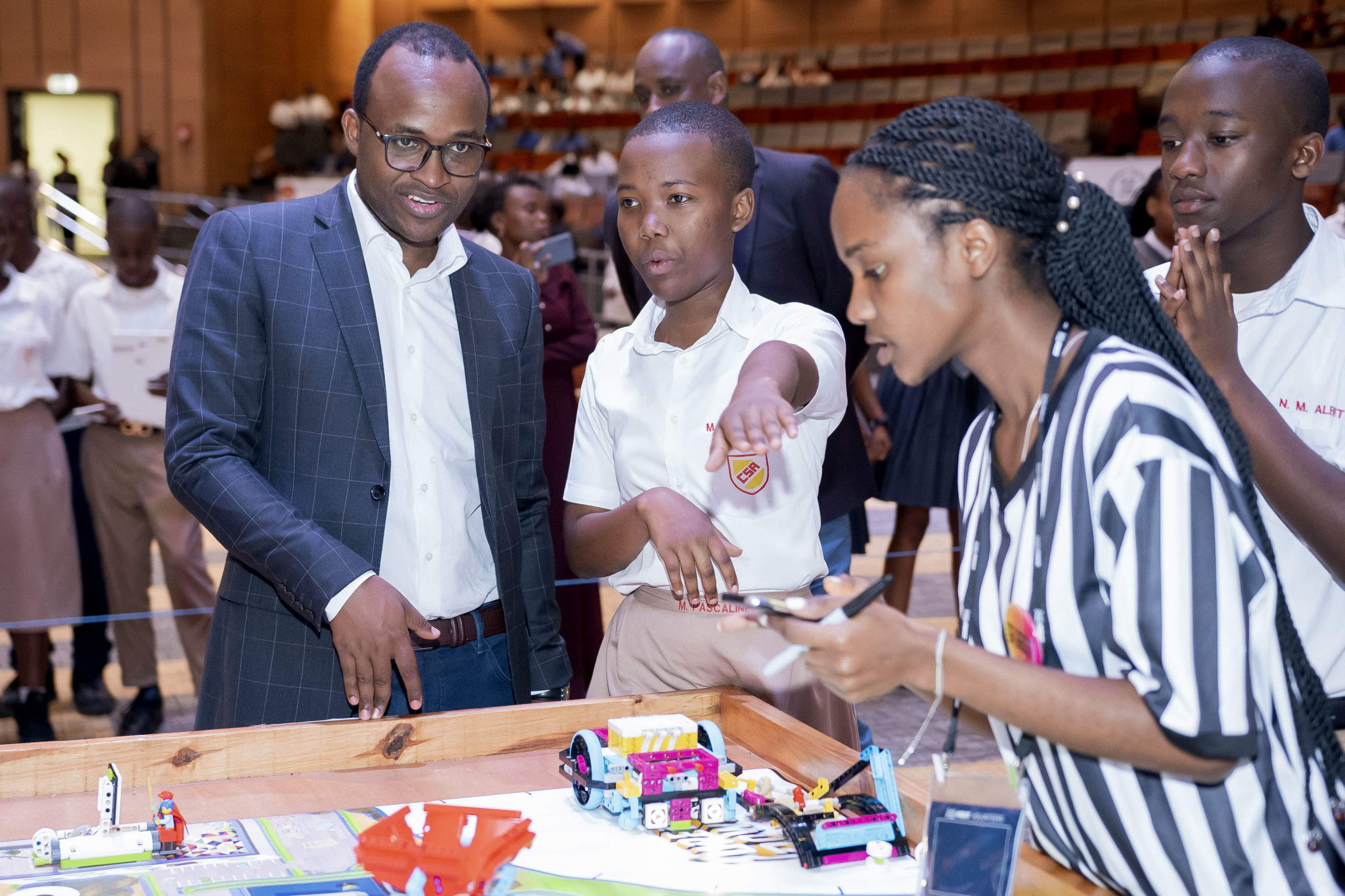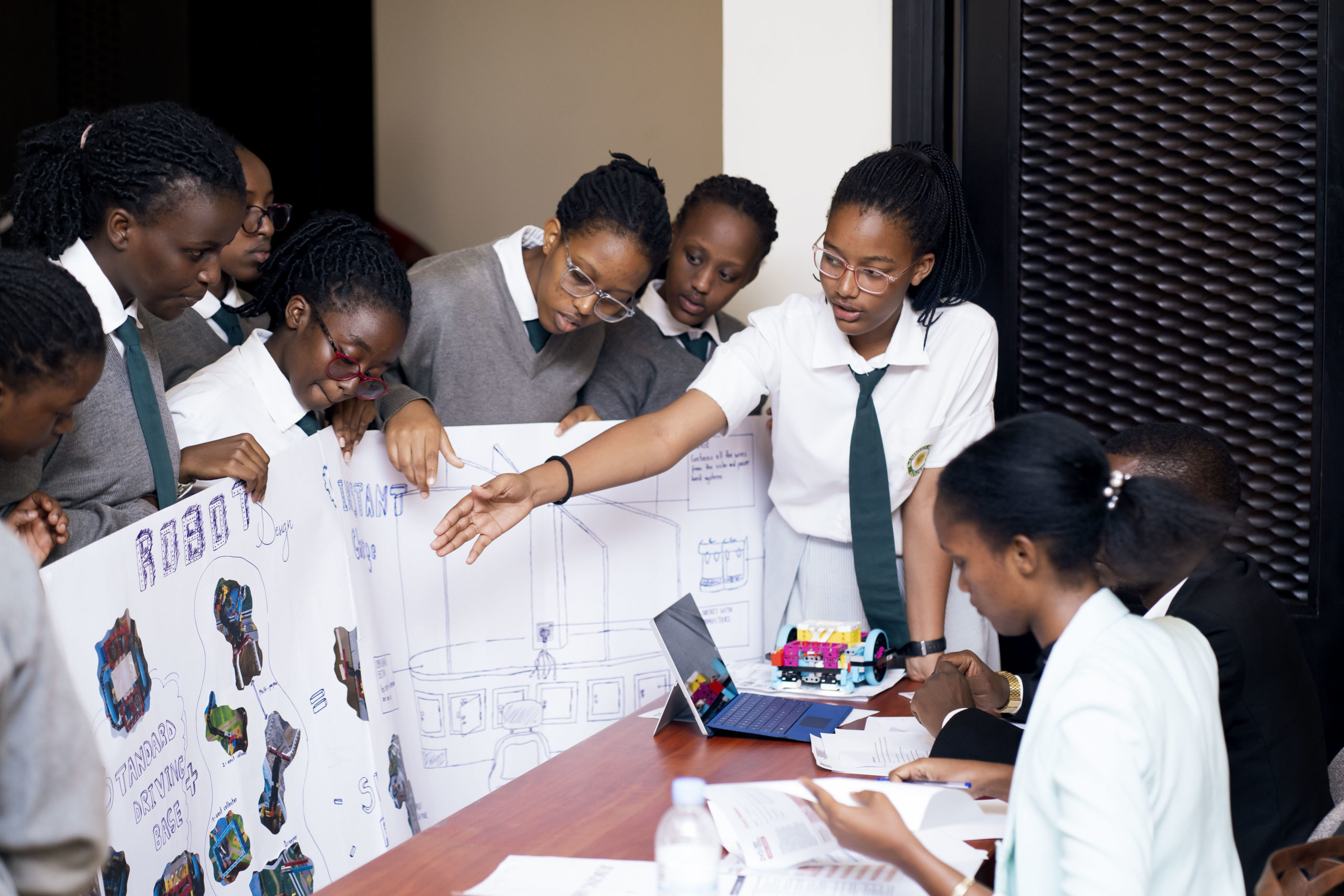DIGITAL INCLUSION AND DIGITAL LITERACY
We are actively involved in capacity-building and digital literacy, targeting people in rural areas, women and people with disabilities, ICT professionals, tech startups and employees of political partner agencies. The Digital Inclusion and Literacy vertical works together with several civil society organizations, The Ministry of ICT and Rwanda Information Society Authority RISA to implement joint programs that bridge the skills gap for both public servants and citizens to create an environment conducive to digital transformation and adoption of digital skills for economic development and improved livelihoods.

digital literacy for farmers
Digital skills are becoming increasingly essential for successfully living, learning, and working in the 21st Century and it is important that no one is left behind. To make a change, with the support of One Acre Fund, we have been able to train 20,000 farmers in Rwamagana, Musanze and Gakenke districts in digital literacy skills. These farmers are being trained to use tools on their mobile devices which make running their business more efficient and more profitable. Through this training, 15,000 women, 5,000 men and over 200 People with Disabilities have benefited.
How has the project impacted the lives of these farmers:
- Farmers, majority of whom are women, have gained new knowledge on digital literacy.
- Farmers have been taught how to use OAF ‘Tubura’ USSD and Mobile Money USSD through digital means.
- The farmers have gained new knowledge on financial literacy, with a focus on saving.
Together with our government partners at MINICT and C4iR, we have visited some of the training sites where we observed the interactive format of the training and active participation of the farmers.
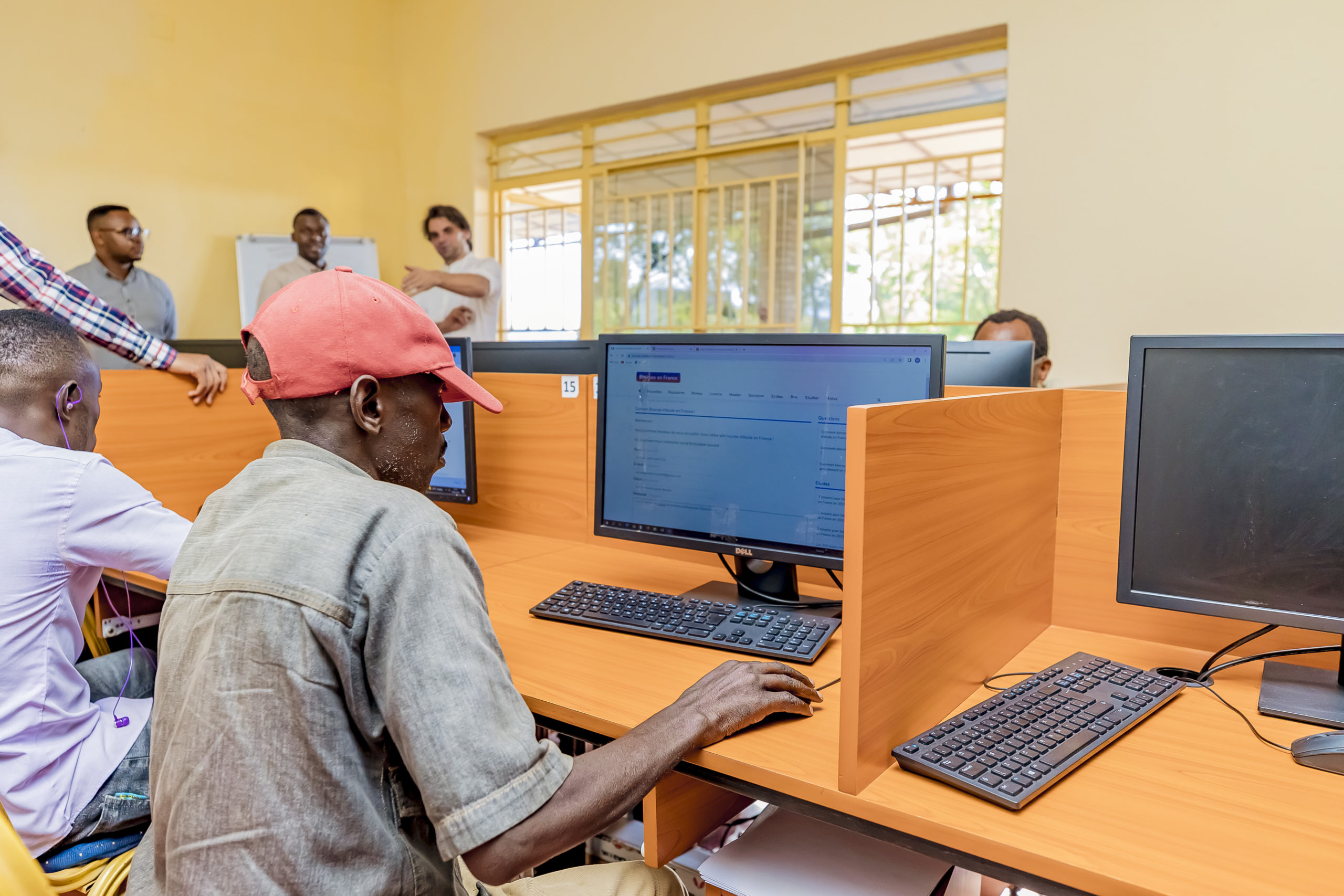
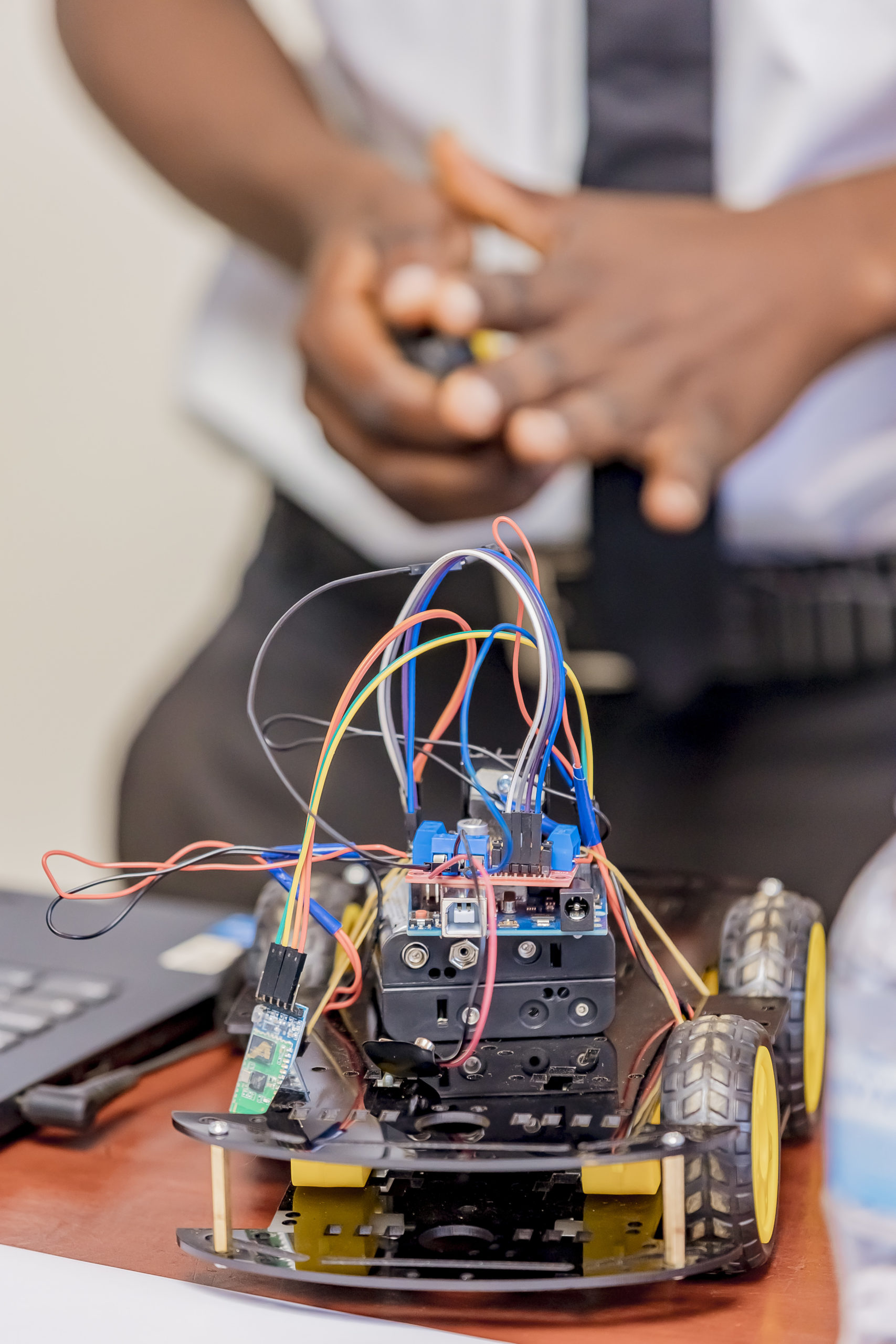
National Robotics Program
Rwanda has decided to become a knowledge-based economy and Technology has a crucial role to play in that. A skilled workforce needs to be fostered from an early age. Through various interventions in collaboration with MINICT, GIZ has supported schools in advancing robotics education as part of STEM initiatives. We are currently working on developing national robotics program that will enhance the existing Rwandan curriculum by using Robotics.
We have supported GS Nkombo with Robotics lab equipment which is currently being used by students to develop their community digital solutions while they learn; such as a blind stick, water pumping systems and others.
After supporting the First Lego League (FFL), we enabled various schools to send students to international robotics competitions. 2 schools went to Morrocco for FLL Africa and other 2 schools went to the USA for global open innovation for Robotics. Briefly, the lives of young students are being changed for the better, Tech oriented carriers are becoming an achievable dream for many kids.
The numbers
Digital Transformation Center Rwanda has focused heavily on improving digital literacy, targeting marginalized groups and the education sector. These efforts aim to bridge the digital divide and ensure that all Rwandans, regardless of ability or background, can participate in the digital economy.
Students benefited from robotics kits and training
people with disabilities received digital literacy training
people with disabilities received digital literacy training

National Robotics Program
Over 452 robotics kits were distributed to 26 schools, with training sessions held for 33 teachers to integrate these kits into the classroom. This initiative provided hands-on experience to over 5,000 students, preparing them for careers in tech
Digital Literacy for People with Disabilities
The program reached over 1,200 people with disabilities, enabling them to use digital tools and access information. The training will be expanded next year to include more specialized content to further enhance digital inclusion
Apple Labs
The establishment of Apple Accredited Training Centers for
Education (AATCE) in five institutions will provide students with world-class tech skills, positioning Rwanda as a hub for tech talent in East Africa.
